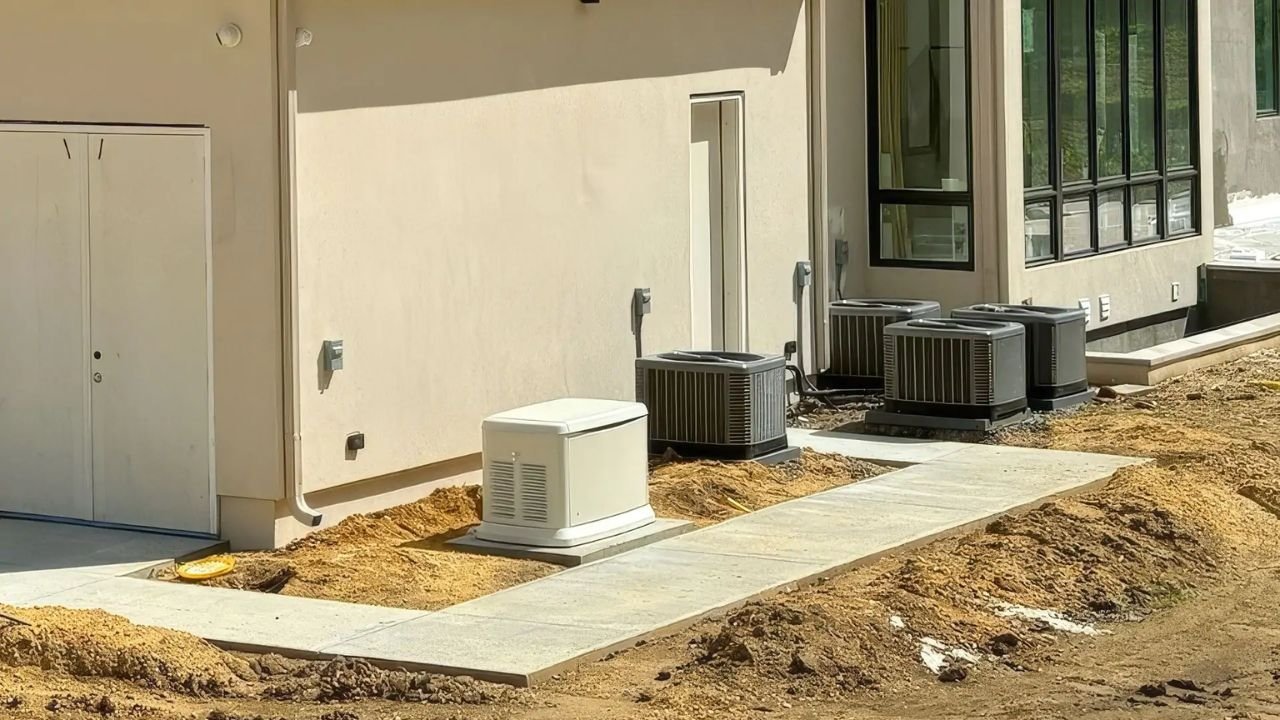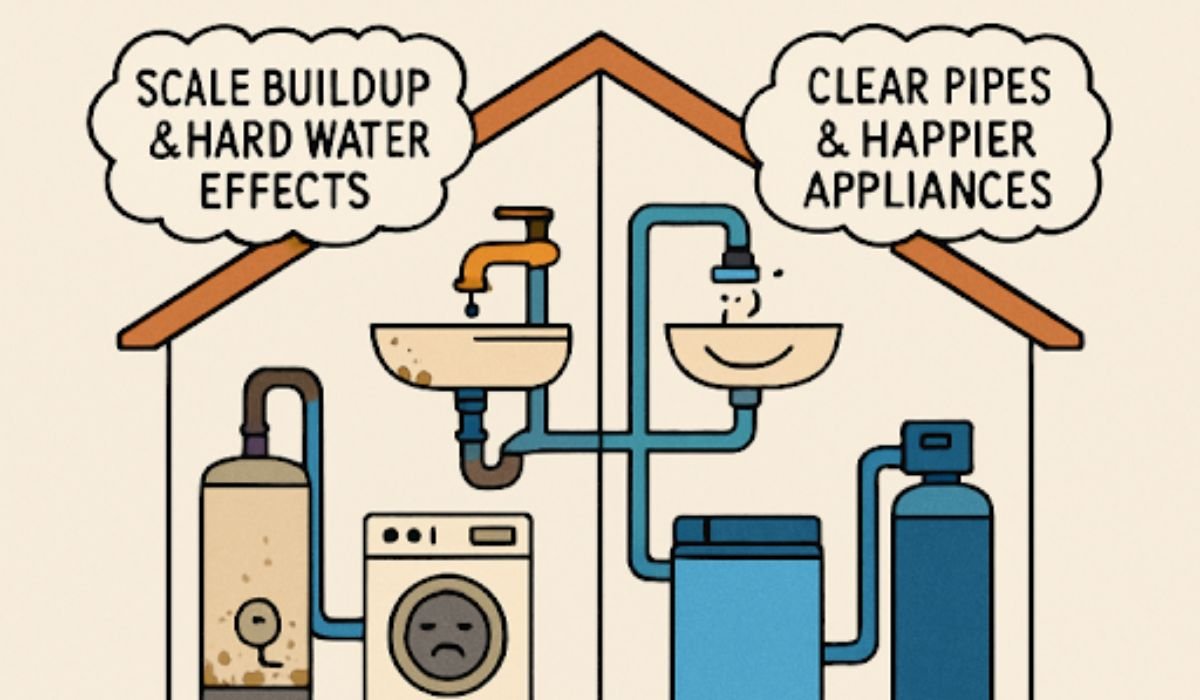When the power goes out, a backup generator can be a lifesaver. It can keep your lights on, your food cold, and your home comfortable during an emergency.
If you’ve ever wondered whether you need a portable generator or a standby generator, this guide will help you decide. Each type has its own benefits and challenges, and the choice depends on your power needs, budget, and how you plan to use it.
Read on to learn more about the best backup generator.
Understanding Portable Generators
Portable generators are small, movable machines designed to provide temporary power. They are often used during short power outages or for activities like camping or outdoor events. These generators usually run on gasoline or propane, making them easy to fuel.
One of the best things about portable generators is that they are affordable. They cost less than standby propane generators and are easy to buy and use.
Because of their size, they can be stored away when not needed. This makes them a good option for people who don’t experience frequent power outages or who only need power for a short time.
However, portable generators also have some downsides. They typically provide limited power, which means they can’t run all your appliances at once. For example, you might only be able to power your refrigerator, a few lights, and a small fan.
They also need to be refueled regularly, which can be inconvenient during long outages. Another challenge is that portable generators require you to start and connect them manually when the power goes out. This setup can be difficult, especially during bad weather or at night.
Despite these limitations, portable generators are a reliable and flexible choice for many situations. If you need a quick and affordable way to keep some essential appliances running, they can be a great solution.
Exploring Standby Generators
Standby generators are larger, permanent machines that provide power to your home automatically during an outage. They are installed outside, much like an air conditioning unit, and connect directly to your home’s electrical system. These generators often run on natural gas or propane, which makes them convenient for long-term use.
One major advantage of standby generators is their ability to power your entire house. Unlike portable generators, they can handle heavy loads, such as running your heating or cooling system, refrigerator, lights, and more all at once. Standby generators also start automatically when the power goes out, so you don’t have to worry about setting them up during an emergency.
Another benefit is that standby generators can run for long periods without interruption. Since they connect to a constant fuel supply, such as a natural gas line, you won’t need to refuel them manually. This makes them ideal for areas that experience frequent or extended power outages.
However, standby generators come with a higher price tag. They are more expensive to buy and install compared to portable models.
Installation usually requires a professional, and the process may involve permits and inspections. These additional steps increase the upfront cost but provide a more reliable and convenient power solution in the long run.
Deciding Based on Your Power Needs
One of the first things to consider when choosing a generator is how much power you need. Think about the appliances and devices you want to keep running during an outage.
Essential items might include your refrigerator, lights, and medical equipment. If you only need to power a few items, the best whole-house generator might be enough. But if you want to keep your whole house running, a standby generator is the better choice.
It’s also important to think about how often and for how long you might need backup power. If power outages are rare and short in your area, a portable generator could meet your needs.
On the other hand, if you live in a place where outages happen frequently or last for several days, investing in a standby generator might be worth it.
Considering Installation and Maintenance
Installation is another key factor to think about. Portable generators don’t require professional installation. You can set them up yourself by following the instructions, and they’re ready to use. However, standby generators must be installed by a professional.
This process involves connecting the generator to your home’s electrical system and ensuring it complies with safety regulations. While this adds to the cost, it also provides a seamless and reliable power solution.
Maintenance needs are different for each type of generator. Portable generators require regular checks and upkeep, especially if you use them often. This includes changing the oil, cleaning the filters, and making sure they are stored properly when not in use.
Maintenance plays a role in your decision-making process. Portable generators typically need more frequent maintenance checks and oil changes, particularly if used regularly. Standby generators, meanwhile, may require periodic professional inspections but tend to be more reliable with less user intervention.
Standby generators, on the other hand, need less frequent attention. They are designed to run smoothly for long periods, but they still benefit from periodic professional inspections to keep them in good working condition.
Fuel Choices and Availability
The type of fuel your generator uses is another important consideration. Portable generators typically run on gasoline or propane. Gasoline is easy to find, but it needs to be stored safely and has a limited shelf life. propane generators are cleaner and last longer but may require special tanks.
Standby generators often use natural gas or propane. Natural gas is convenient because it comes from a direct line, so you don’t have to worry about refueling.
Propane is a good alternative if natural gas isn’t available in your area. Both options allow standby generators to run continuously for as long as the fuel supply lasts.
Comparing Costs and Value
The cost of a generator depends on its type, size, and features. Portable generators are usually more affordable, with prices ranging from a few hundred to a couple of thousand dollars. Standby generators, on the other hand, start at around $2,000 and can go up to $10,000 or more, especially when you include installation costs.
While standby generators are more expensive upfront, they offer long-term value. Their automatic operation and ability to power your entire home make them a convenient and reliable option.
Portable generators are a cost-effective choice for those who only need temporary or occasional backup power. Weighing these factors will help you decide which option is the best investment for your needs.
Understanding Generator Runtimes
How long a generator can run is another important factor. Portable generators have limited runtimes because they rely on fuel tanks that need to be refilled. For example, a gasoline-powered generator might run for about 8 to 12 hours before needing more fuel. This makes them better suited for short outages or specific tasks.
Another important factor when choosing the best backup generator is understanding generator runtimes. The runtime of a generator depends on its fuel type and load levels.
A portable gasoline unit might run for 10 hours at half-load. However, it would be less effective to run many high-wattage appliances at once. Or, standby generators, with their direct fuel connections, generally offer more prolonged run times without the constant need for refueling.
Standby generators, with their direct fuel connections, can run for much longer. As long as the natural gas or propane supply is available, they can keep your home powered indefinitely. This makes them ideal for prolonged outages or areas with unreliable electricity.
Considering Noise Levels
Noise is something to think about when choosing a generator. Portable generators can be quite loud, which might bother your neighbors or disrupt your own peace and quiet. Some newer models are designed to be quieter, but they still make more noise than standby generators.
Standby generators are typically installed outside the home, away from living spaces. They are built with noise-reducing features, so they operate more quietly. If you value a quieter environment, a standby generator is a better option.
Making the Right Choice
To decide which generator is right for you, consider your lifestyle and how often you’re likely to need backup power. If you only experience occasional outages and don’t mind setting up a generator manually, a portable model is a good choice. It’s affordable, easy to store, and works well for temporary needs.
If you live in an area where power outages are common or long-lasting, a standby generator is a better investment. It provides automatic and continuous power, making it a reliable solution for your home.
By knowing the differences between these two generators, you can decide. Consider power needs, installation, fuel, and costs.
A backup power source will keep your home running during outages. A portable or standby generator will give you peace of mind.
Stay Prepared With the Best Backup Generator
Choosing the best backup generator depends on your needs, budget, and preferences. Portable generators are flexible and affordable, making them great for short-term or occasional use. Standby generators offer more power, convenience, and reliability, especially for homes that need continuous electricity during outages.
For more helpful tips, check out the rest of our site today.











